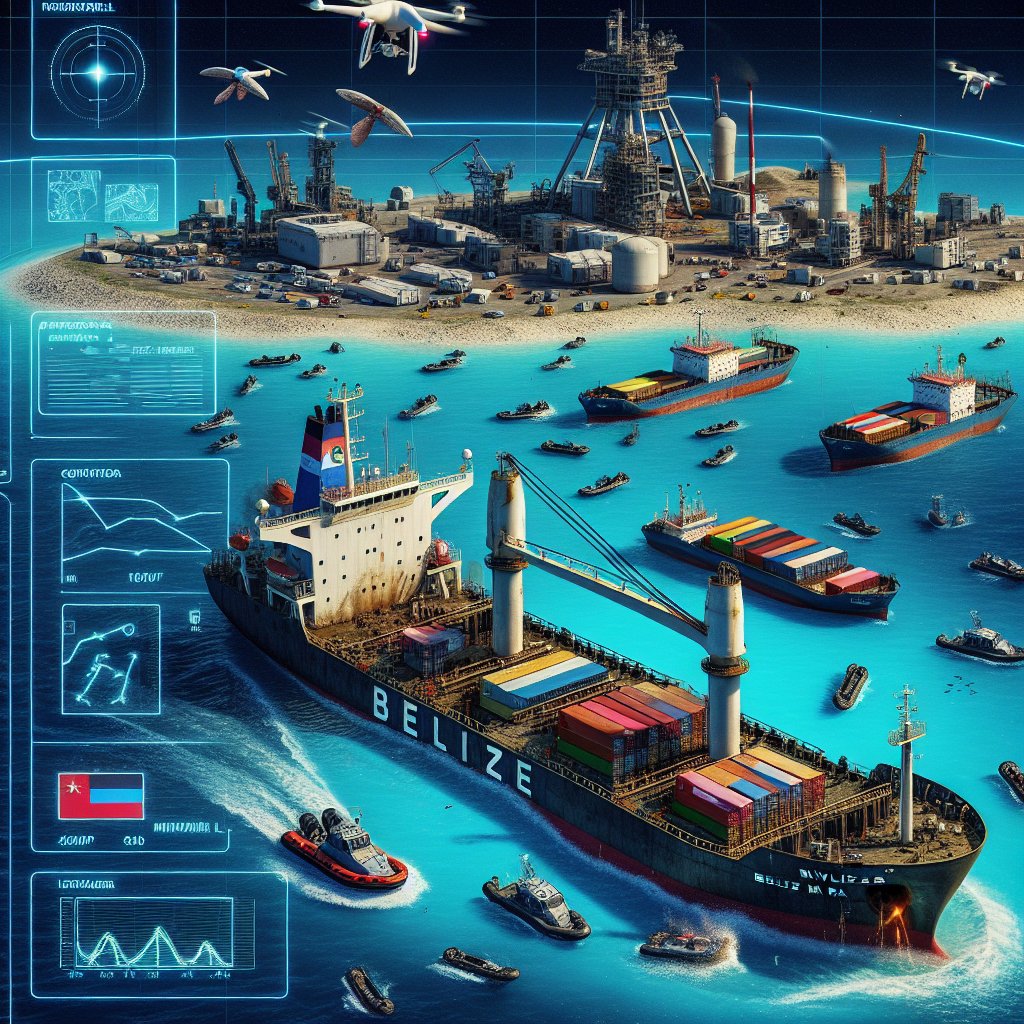Image created by AI
Abandoned Ship in Gulf of Aden Highlights Rising Maritime Risks Amid Houthi Strikes
The escalating conflict in the Red Sea has seen yet another maritime casualty, with the Belize-flagged cargo ship Rubymar still adrift after being abandoned due to Houthi missile strikes in the Gulf of Aden. Despite sustaining damage and taking in water since Sunday, the potentially perilous fate of the vessel remains uncertain.
The ship, which had been bound for the Bulgarian port of Varna, became a target amidst rising shipping risks associated with the Iran-aligned Houthis' aggressions through drone and missile strikes that have plagued the Red Sea since November. These attacks have not only posed a direct threat to commercial shipping but have also prompted responsive military strikes by the US and British forces. Despite these measures, the intimidation against maritime activity continues unabated.
The crew, consisting of individuals from diverse nationalities including Syrians, Egyptians, Indians, and Filipinos, safely disembarked from the Rubymar and were subsequently rescued by another commercial ship, with their safe repatriation facilitated by the Djibouti Ports & Free Zones Authority. The vacant ship now not only represents a navigational hazard but is a floating reminder of the collateral impact of the Yemen conflict on the global shipping industry.
The vessel's condition has prompted industry sources to suggest towing the Rubymar to the nearest port of refuge—Djibouti—considered the most viable for recovery or salvage operations given the risks involved with long-distance towage in such compromised circumstances. However, details surrounding the vessel's insurance and owner remain shrouded in obscurity.
Further complicating the issue, the Rubymar reportedly hosted a large consignment of potentially hazardous fertilizer (IMDG class 5.1), a spillage of which could wreak havoc on the region's delicate marine ecosystem and fishing industry. With its AIS transponder now off, tracking the exact location of the Rubymar presents another set of challenges.
These dangers were underscored by a recent US State Department condemnation of the maritime attacks, emphasizing the profound economic implications and potential environmental damage these incidents could incur. The statement also illustrated how such assaults exacerbate instability by hindering the delivery of essential goods and medical supplies to already struggling nations such as Sudan, Ethiopia, and Yemen.
Despite international outcry and retaliatory actions, the Houthi faction remains steadfast in their commitment to target vessels they perceive to be affiliated with Israeli interests, linking their campaign to the broader regional conflicts involving Israel and Palestine.
While no casualties or sunken ships have resulted from these incidents thus far, the safety of seafarers transiting the high-risk areas has come to the forefront of international maritime security conversations. Accordingly, advisories from naval agencies highlight the need for heightened vigilance and caution for vessels navigating these treacherous waters.










